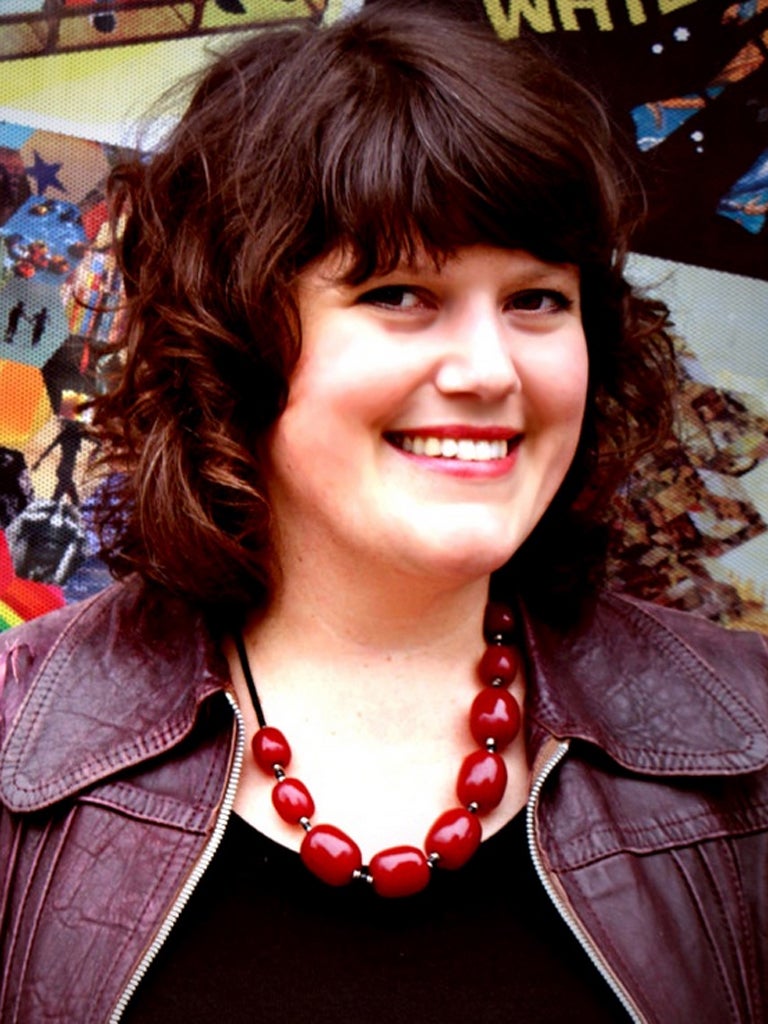The week in radio: Ruth Barnes is a pop pioneer who knows what women want

Your support helps us to tell the story
From reproductive rights to climate change to Big Tech, The Independent is on the ground when the story is developing. Whether it's investigating the financials of Elon Musk's pro-Trump PAC or producing our latest documentary, 'The A Word', which shines a light on the American women fighting for reproductive rights, we know how important it is to parse out the facts from the messaging.
At such a critical moment in US history, we need reporters on the ground. Your donation allows us to keep sending journalists to speak to both sides of the story.
The Independent is trusted by Americans across the entire political spectrum. And unlike many other quality news outlets, we choose not to lock Americans out of our reporting and analysis with paywalls. We believe quality journalism should be available to everyone, paid for by those who can afford it.
Your support makes all the difference.It's official: the gender imbalance is on radio is real, and it's a problem. Of course, for those of us in possession of both ears and ovaries, this is hardly breaking news. But for the benefit of all the knuckle-dragging nitwits who like their ironing done by someone else and who say we should stop whining because we have Radio 4's Woman's Hour – a whole hour! Every day! Entirely to ourselves! – it's now here in black and white.
A study conducted by the pressure group Sound Women logged a week of mainstream British radio and found that only one in five solo voices on the airwaves is female, and that the ratio of men to women drops further during peak listening hours. Furthermore, it was discovered that on a co-hosted show, you are 10 times more likely to hear two male presenters than two female ones.
This investigation arrives after a newspaper last year reported that an average of 18.5 per cent of reporters and guests on Radio 4's Today, a programme with nearly seven million listeners, are female. The announcement this week of new female presenter, Mishal Husain, shows they are at least trying to address the problem, but the overall figures still reek.
So I thought now might be a good time to look at radio programmes made by women, and with an eye on a female audience. If I'm honest, beyond Woman's Hour, I wasn't sure there were any. But further research opened up a brave new world of podcasts and niche radio in which women are not just token afterthoughts but the driving force behind new and interesting shows. Admittedly, one needs to rummage through the internet to find them. But they exist.
Blazing a trail for female-centric programming is The Other Woman with Ruth Barnes, an hour-long show on the UK station Amazing Radio. It's devoted to new music made by women, but is far from the navel-gazing wailathon that male listeners might fear (this week's show kicked off with the snort-inducing Lady Lykez's "I Love My Butt"). Neither does it shove gender politics down listeners' throats. This isn't about getting one over the patriarchy. It's a show for people who like hearing new stuff, courtesy of a knowledgeable host. It's lady music played by a lady.
Slumber Party with Alie & Georgia on Feral Audio is a sweary and delightfully dirty podcast made by two Los Angeles-based drinking buddies who found fame with a spoof online video that championed the McNuggetini, a cocktail made from chocolate milkshake, barbecue sauce, vanilla vodka and garnished with a Chicken McNugget. Under discussion this week were toothless cats, egg freezing and female mayflies, which are born with two vaginas. I loved their smart chat and the fact that you could hear the ice clinking in their cocktails as they talked.
A more serious US offering is Slate Radio's DoubleX Gabfest, in which three journalists – Hanna Rosin, Allison Benedikt and Noreen Malone – mull over topical women's issues. Previous episodes have included discussions on women and guns, the Rihanna/Chris Brown saga and the Steubenville rape case.
This week the topic was a new California legislation protecting transgender children at school, allowing them to choose which toilets they use and which teams to join in during sports lessons based on gender identity. This sparked a debate about parental responsibility, gender dysphoria and at what age a child can truly know which side of the gender fence they are on. This was an important subject, which you felt could have benefitted from the input of a transgender person who had experienced these problems. That it was being debated at all, however, would seem like progress.
Join our commenting forum
Join thought-provoking conversations, follow other Independent readers and see their replies
Comments